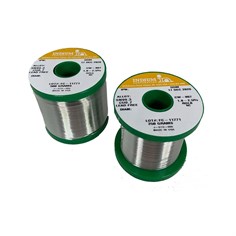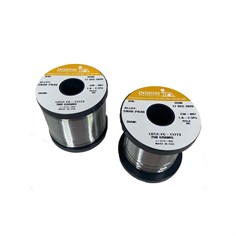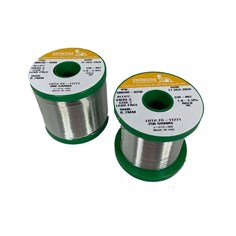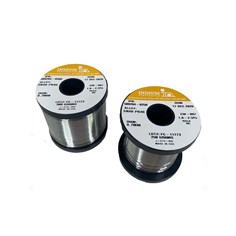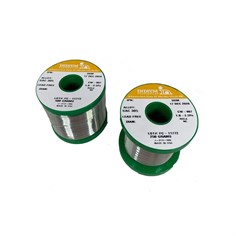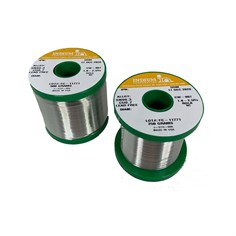- Home
- Solders, Fluxes and Preforms
- Soldering Wire
Soldering Wire
Soldering wire is made from a fusible metal alloy with a low melting point. It is used to create a permanent joint between two metals that have a higher melting point. This process is known as soldering. Soldering is used in the electronics industry for PCBs and other components. It is also common in jewellery manufacturing and plumbing. It comes in both lead and lead-free variations. Due to health and environmental concerns, lead-free has become the new standard.
Conro offers a wide choice of soldering wire from major manufacturers such as Indium.
Conro is an authorized distributor for Indium.
Types of soldering wire
Soldering wires are available in a broad range of alloys, melting points and diameters. Make sure to understand your soldering requirements when selecting a wire, so that the purchase suits your needs.
The two main types of soldering wires are lead alloy and lead-free.
· Lead alloy: Usually made from an alloy of tin and lead. The most common ratio is 60/40. Tin is used with lead because of its low melting temperature. Leaded solder is easier to work with, but potentially harmful.
· Lead-free alloy: The current standard. Usually made from a tin/copper alloy. It can also contain silver. Lead-free wires are safer to use. They require a higher temperature to melt.
Flux-cored soldering wire
Soldering wires used in the electronics industry usually contain rosin flux. The flux is released when the soldering iron melts the wire.
Flux is a chemical agent used to improve the strength of the soldering joints. It protects metal surfaces from oxidation, improves electrical contact and helps the flow of molten solder.




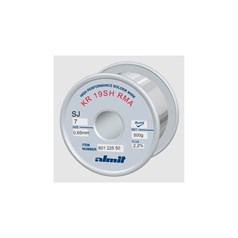
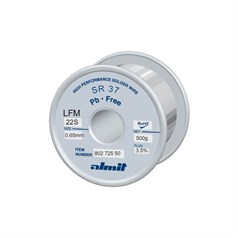
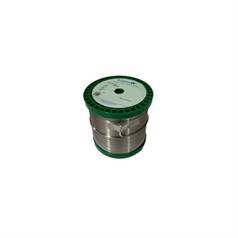
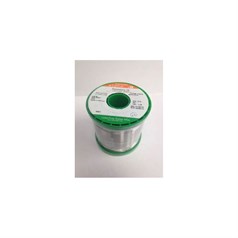
-0.5mm-500G-Reel.jpg)

